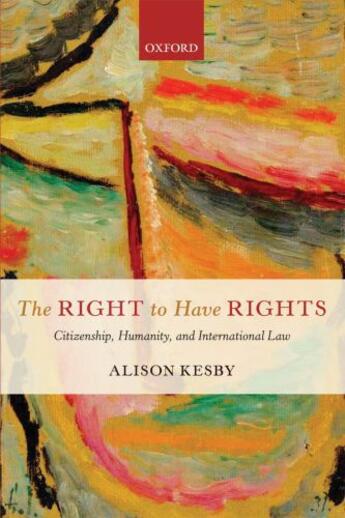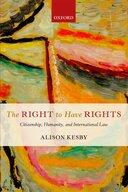Résumé:
Writing in the immediate aftermath of the Second World War, the political theorist Hannah Arendt argued that the plight of stateless people in the inter-war period pointed to the existence of a 'right to have rights'. The right to have rights was the right to citizenship-to membership of a... Voir plus
Writing in the immediate aftermath of the Second World War, the political theorist Hannah Arendt argued that the plight of stateless people in the inter-war period pointed to the existence of a 'right to have rights'. The right to have rights was the right to citizenship-to membership of a political community. Since then, and especially in recent years, theorists have continued to grapple with the meaning of the right to have rights. In the context of enduring statelessness, mass migration, people flows, and the contested nature of democratic politics, the question of the right to have rights remains of pressing concern for writers and advocates across the disciplines.
This book provides the first in-depth examination of the right to have rights in the context of the international protection of human rights. It explores two overarching questions. First, how do different and competing conceptions of the right to have rights shed light on right bearing in the contemporary context, and in particular on concepts and relationships central to the protection of human rights in public international law? Secondly, given these competing conceptions, how is the right to have rights to be understood in the context of public international law? In the course of the analysis, the author examines the significance and limits of nationality, citizenship, humanity and politics for right bearing, and argues that their complex interrelation points to how the right to have rights might be rearticulated for the purposes of international legal thought and practice.
Donner votre avis















